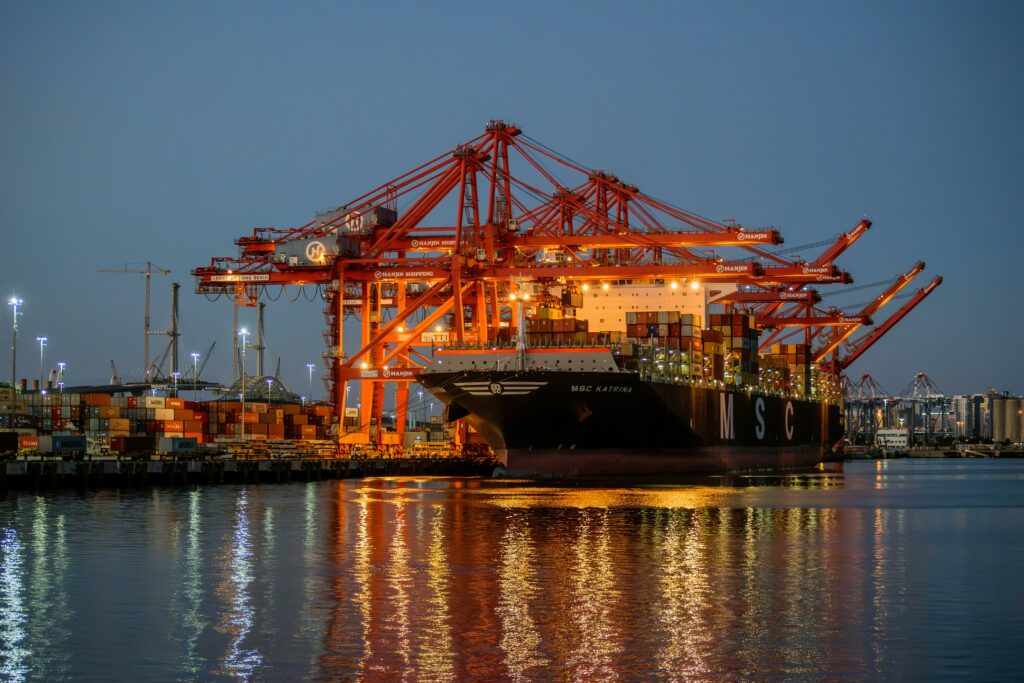
Before we find out about the latest research, tell us a bit about yourself and your research interests in DECaDE…
My career has been focused on transforming business and engineering technology to address new challenges. Through my work with IBM, I was recognised as a technical leader and gained my Fellowship of the Institution of Engineering and Technology, as well as the BCS, The Chartered Institute for IT, in 2005. I have also been recognised as a Chartered Engineer.
Since leaving IBM in 2010, I have worked as a director for several companies, mainly within financial services, to determine how to utilise innovative digital technologies to address complex business problems. Since 2015, my focus has shifted to Industry 4.0 technologies, including blockchain and the Internet of Things (IoT), and their adoption in cross-border trade and financial services. This led me to work with the Surrey University Centre of Digital Economy as a Visiting Fellow in 2017, and my engagement with the formation of DECaDE in 2018, which was formalised as a research fellow in 2024.
Since 2019, I have been working with the UK government and industry to research the challenges of cross-border supply chain operations, which has led to the development of papers on trust and resilience . This research led to the development of a white paper, “Governance Framework for the Evolution of UK Cross-Border Trade Ecosystem” building on my earlier work with UCL .
• You are publishing a White Paper – Governance Framework for the Evolution of UK Cross-Border Trade Ecosystem. Can you give me an overview of the paper?
The UK’s digital trade ecosystem at the customs border is fragmented. The evolution and transformation of the digital trade ecosystem at the customs border necessitate the coordination and collaboration of multiple actors across industry and the UKG, presenting a governance challenge. Research suggests that the governance challenge is exacerbated by differences between industry and the UKG’s operational goals at the border, characterised by information and trust asymmetry, as well as decoupled supply chain resilience across cross-border participants. Whilst we advocate for an “honest broker” to orchestrate the ecosystem of organisations involved in cross-border trade, they will require specific governance capabilities. Working with UK government departments, researchers at the University of Surrey have examined the latest knowledge on collaborative governance, co-creation of value, and platform theory that can be employed to catalyse the evolution of cross-border trade operations. Without the orchestration of change in policy, process, and technology, we risk duplicating efforts, increasing border friction, and falling behind our peers in digital trade readiness. We propose a collaborative governance framework for orchestrating the evolution of current platforms, data, and institutional policies, thereby accelerating progress toward a more resilient, efficient, and trusted digital border.
• What is the biggest issue facing the UK’s digital trade system? How does DECaDE propose to solve this issue?
Global supply chains and UK customs border operations have recently faced significant challenges: economic shifts, EU exit, US tariffs, and global uncertainty have impacted UK supply chains and customs border functions. Friction and disruption at the UKG customs border cause downstream delays, affecting the performance and resilience of international supply chains. UK customs processes and systems are further impacted by the additional high volumes of goods requiring customs clearance with the EU. Administrative burdens and delays in delivering goods to the end consumer reduce operational efficiency and assurance in the supply chain.
To address this, the UK Government and industry are adopting new digital technologies to create greater resilience, resolve longstanding economic problems and improve the efficiency of cross-border operations. In developing new border capabilities, the UK Government seeks to enhance UK Plc by promoting new trade agreements and creating new markets. However, there have been failures in deploying digital platforms to address the problem of cross-border trade. The UKG programme to create a Single Trade Window was paused between November 2024 and June 2025 due to governance and cost issues . As stated in the recent UK Trade Strategy , this programme is scheduled to restart within the current parliamentary term.
• Can you tell me how it ties in with the Government Trade Strategy?
In June 2025, the UK Government introduced two new policies: an Industrial Strategy and a Trade Strategy. The focus will be on several digitisation initiatives, led by each UK Government department, with an emphasis on integrating their departmental systems, and there is also commentary on re-establishing the Single Trade Window programme and building on the adoption of electronic documents; however, consideration of the end-to-end cross-border supply chain, as well as the integration of processes and data across government departments and operations, is lacking.
The UK Government should seize the opportunity to develop a strategic vision to catalyse the evolution of cross-border operations, several key steps are necessary to ensure the vision is achieved:
• Designate a single entity with a mandate to provide leadership and orchestration to address UKG and industry requirements and catalyse the required integration of policy/legislation, processes, digital platforms, and data for evolutionary change across the cross-border trade supply chain.
• Create a shared vision for digitally enabled trade across the UKG and industry that outlines the digitisation and digitalisation of the end-to-end cross-border supply chain, aligning operational goals, reducing friction, and improving resilience.
• Utilise the proposed governance framework, building on the socio-technical aspects, to incentivise change across UKG and the industry, as well as the cross-border supply chain, prioritising collaboration and co-creation of solutions.
• What are the next steps in terms of your research?
To continue to work with DECaDE, and my engagement with the UK Government and Industry (with IC4DTI) and as part of building on the Tony Blair Institute for Global Change report.
• What future do you see for the UK’s digital trade eco-system?

With the UK’s leading position gained over the last six years with the implementation of new legislation, the ETDA , the piloting of digital trade platforms, the new UK parliament presents the opportunity to seize the opportunities of future trade agreements to implement a new ‘digital silk road’ for UK trade.
The absence of a ‘key orchestrator’, an organisational entity across UKG and industry that considers industry challenges, policy, legislation, and regulation to develop a shared vision or future state architecture for the cross-border trade ecosystem, further impacts change in the UK, driving the evolution of cross-border trade operations.

